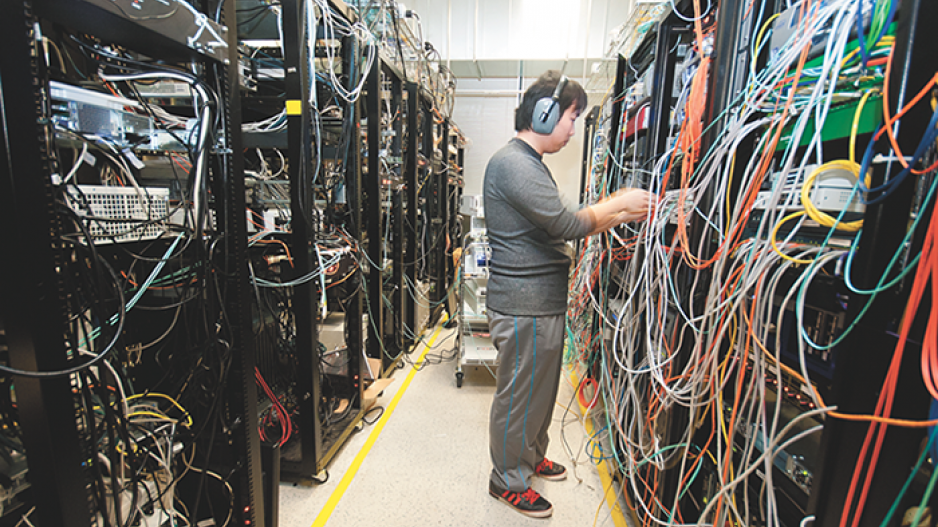Alex Harvey was one of Fortinet’s youngest employees when he started as a 22-year-old quality assurance tester in 2007 – a time when the company wasn’t all that interested in junior talent.
“There was no mentoring infrastructure in place at the time,” said the technical marketing engineer, who entered the tech industry doing contract work as a 14-year-old in Ontario.
“I had a lot of experience but I was still, on paper, young, sort of unproven.”
One initial public offering (IPO) later, the Burnaby office is “busting at the seams” as grads straight from post-secondary schools scoop up research-and-development jobs at the network security company, Harvey said.
Founded in Burnaby by Silicon Valley entrepreneur Ken Xie and his brother Michael Xie in 2000, Fortinet has maintained 90% of its research and development team in B.C., even after moving its headquarters to California.
Burnaby remains home to its largest office, with about 550 employees, after the head count exploded following its 2009 IPO. When Harvey started, there were just 100 people in Burnaby, but worldwide today Fortinet employs just under 3,000 people.
“Now we’re the third-largest [network security appliance vendor], you’d think our growth would slow down,” said Joyce Chow, Fortinet’s human resources director in Burnaby. “Our year-on-year growth last year was 27%.”
She added the company expects similar growth this year, when the number of personnel is expected to surpass 3,000.
Despite relocating its head office to Silicon Valley more than a decade ago, Fortinet has reasons beyond the “loyalty factor” to keep so much infrastructure and staff in Burnaby, Chow said.
Competition for tech talent is fierce, and expensive, in and around San Francisco. The company keeps costs down by maintaining most of its research and development team in B.C.
Meanwhile, this year’s decline in the loonie has made it easier for the company, which operates in U.S. dollars, to justify expanding its Canadian offices.
Chow added Fortinet is in the midst of filling 60 vacant positions at its B.C. office to keep up with this year’s anticipated growth.
Finally, she said, the calibre of students coming out of post-secondary institutions in B.C. who are ready for a job in the tech industry makes it easier to recruit junior developers than it was just a few years ago.
“There are very few security companies in Canada that do anything related to anti-virus and security research,” Chow said. “We basically have to incubate and train our own people.”
But Harvey said there is one caveat for new grads – they’ll be expected to go through a “boot camp from hell” when they start.
“We have to,” he said. “We want to make sure the ones who get through it are the ones who truly love this work.”
While the Burnaby head count has grown by more than 400% since he started, Harvey said Fortinet has resisted turning into the type of monolithic business that makes it hard for innovation to flower.
“Even though we’ve gotten fairly large … we still are very much, in terms of how we do certain things, have the best parts of what a startup has,” he said, adding by breaking employees off into smaller teams responsible for their own mini-startups, “we’ve been able to retain and keep that flexibility.”




